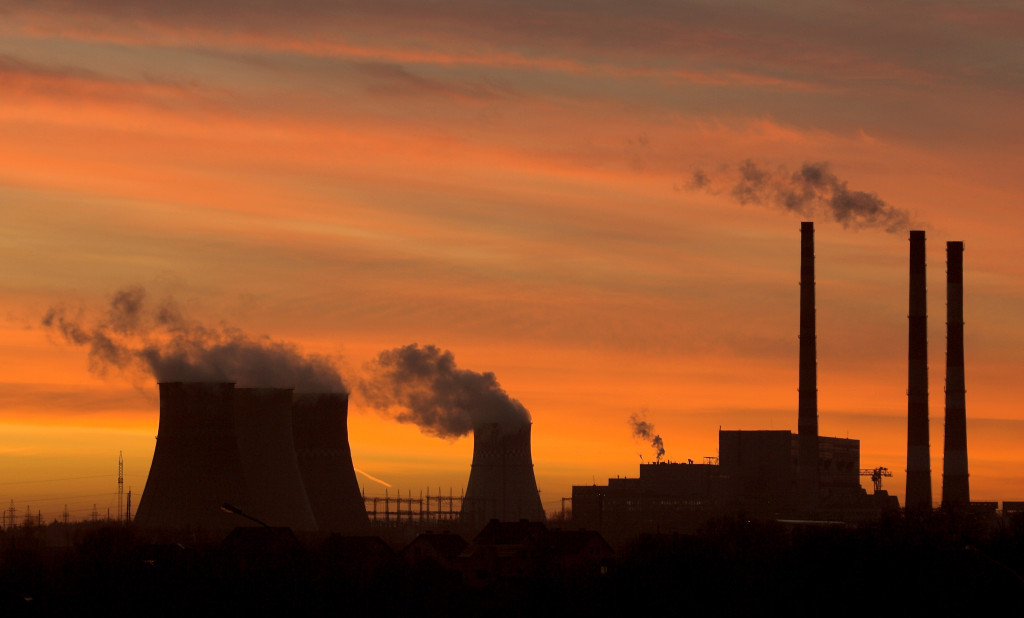 By Ray Rivers
By Ray Rivers
March 7, 2015
BURLINGTON, ON
Ontario’s minister of the environment. Glen Murray, might have chosen a better winter. He has announced province-wide climate change consultations as a prelude to developing a new strategy. But after the coldest winter in ages he may well get a cool reception from folks who haven’t warmed up to the difference between weather and climate.
The Province has released a discussion paper as a starting point for consultations. This is one of those primers on the topic – a sort of ‘climate-change-for-dummies’. It is more style than substance, to be sure, but the paper does crawl up to a bottom line. A carbon tax is on the horizon for Ontario!

There is a direct connection between this picture and the one on the right.

What does a person who cares about the environment and is prepared to pay to preserve the plant we live on do to keep the northern environment?
Carbon taxes are anathema to our federal government. We recall how Mr. Harper shredded Liberal leader Dion for making a carbon tax the centerpiece of his election campaign a few years ago. And Harper, we know, had spent his earlier days as a climate change denier, though today, as PM, he has to give some lip service to the phenomenon. Besides he is the man who has never seen a tax he liked.
But that isn’t how the nation’s provincial jurisdictions see it. Gordon Campbell may have come from the same place as Harper when he first came into power in B.C. several years ago, but he quickly came to understand the issue. Performing an almost perfect 180 degree back-flip, his government became seriously committed to the environment, and climate change in particular. And the centerpiece of his program was a ‘revenue neutral’ carbon tax. In turn, the B.C. public has vindicated his decision and endorsed the tax by supporting the Liberals at the polls.
Quebec also has a carbon tax and Alberta has a ‘cap-and-trade’ emissions trading regime, which works as a kind-of carbon tax. Ontario has been toying with the idea of joining a couple of US state-led emissions trading initiatives, or starting its own emission trading program. But unlike some other provinces, Ontario is still standing by the water’s edge with one foot in the water in this regard.
Not that anyone should dare criticize Ontario for lack of action. The province didn’t need a carbon tax or cap-and-trade program to score the most impressive GHG reductions in North America. While emissions have increased in most of the other provinces, and soared in Alberta, Ontario’s emissions plummeted to 6% below its 1990 levels. Had every other province followed Ontario’s lead, Canada would have been able to meet its Kyoto international obligations instead of throwing up our hands and becoming the first nation to withdraw from the global treaty.
If you can’t get the puck into the net you might try moving the goal posts. That has been Canada’s approach to defending climate change inaction with this PM, who, in fact, has a book on hockey to his name. But moving the milestones to 2007 just makes Ontario’s performance look better with an impressive 17% reduction.
So if Ontario is already the most valuable player in the league, why do we need a carbon tax? Cynics might speculate that the provincial government is just looking for a new ‘cash cow’ to reduce the provincial deficit and debt. And as to a new tax – well it’s a bit like Molière’s ‘bourgeois gentilhomme’, who striving to become a gentleman and speak in prose, finally realizes that he’d been speaking it all his life.
For example, our healthy electricity rates reflect the shift away from lower cost dirty coal. Isn’t that a carbon tax by another name. And aren’t the HST and federal excise tax, charged per litre at the petrol pump, just a carbon tax by another name? How would a new carbon tax be any different? In the end B.C. and Quebec’s fancy carbon taxes amounted to not much more than jacking up consumer costs at the pump.

It might be a nice photograph – but it is not by any stretch of the imagination a pretty picture.
The theory behind the carbon tax is that it dis-incents the use of fossil fuels, and the consequent release of emissions. Sales taxes are consumption taxes. They discourage consumption so they are good tools from that perspective, as we have seen with declining tobacco sales. But sales taxes, like the HST, are not without their consequences.
It’s called the income effect. Consumption taxes hurt lower income tax payers more that those who are well endowed. This inequity has earned sales taxes, also called indirect taxes, the title of ‘regressive’ as opposed to ‘progressive’ – which is what economists call income or inheritance taxes. Progressive taxes are more socially equitable since one pays taxes in keeping with one’s ability to pay.
B.C.’s effort at ‘revenue neutrality’ trades off consumption taxes for income taxes and inevitably hurts lower income residents, notwithstanding its overall popularity. Those wondering why the wealth spread between the rich and the poor in this country has sky-rocketed over the last couple of decades need only to look at Brian Mulroney’s trade-off between introducing the GST and reducing progressive income taxation.
For a carbon tax to be effective, there need to be alternatives to fossil fuels. The public needs to have the means to shift to public transportation and/or afford and accept the myriad of emerging electric and hybrid vehicles. Further, any such tax has to be big enough to catch people’s attention, so they’ll seriously consider making the shift from the status quo. Otherwise they might as well continue driving that guzzler, grumbling about the high costs and voting for the other political party at the next election.
Having been cultured for over two decades on the evils of taxation, Ontario residents can be expected to resist the imposition of a new carbon tax. However B.C. has shown that making the the new tax revenue-neutral can induce public acceptance. And this acceptability can be enhanced by demonstrating that the proceeds of the tax have been applied to furthering emissions reductions, not simply taken as another tax grab to get dumped into the provincial treasury.
It is not everyday that a government anticipating a new tax, invites broad public participation in helping it make that decision. The links below include access to the discussion paper as well as other background. It behooves us to respond to this invitation by the Wynne government, a government that has shown itself to be inclined to action, rather than just philosophizing.
Climate change is a serious matter with potentially dangerous outcomes, regardless of how much today’s weather may have seduced us into inertia. We owe it to the next generation to participate.

Ray Rivers writes weekly on both federal and provincial politics, applying his more than 25 years as a federal bureaucrat to his thinking. Rivers was a candidate for provincial office in Burlington where he ran as a Liberal against Cam Jackson in 1995, the year Mike Harris and the Common Sense Revolution swept the province.
Background links:
Climate Change Consultations Climate Change Paper Carbon Tax
Carbon Tax and Keystone Quebec’s Carbon Tax More Carbon Tax –















Right on Chris Ariens and thank you Ray for a well written article. I encourage citizens to read the provincial discussion paper which is bold and visionary, but will require broad-based support to succeed…difficult to achieve in our current political environment.
I won’t go as far as David Suzuki and call for the Jailing of people who are not thinking correctly, but surely, we can put them in re-education camps to get their minds right.
Good article, Ray, although there is a simple way to make a carbon tax-shift work progressively.
All they have to do is deliver revenue neutrality by either raising the individual exemption (the amount someone can earn before the bottom tax bracket kicks in) or by lowering the rate for the lowest income bracket. This will ensure that the benefits accrue proportionally to all citizens of the province, rather than skewed to the higher income brackets.
The other important piece is the municipal infrastructure deficit.
Fuel excise taxes at the provincial level and at the federal level have stayed at the exact same levels since the early 1990’s.
Meanwhile, the amount of municipal property taxes that has gone to pay for road maintenance and construction has done nothing but climb, as have the infrastructure deficits of cities like Burlington struggling to deal with all that infrastructure that needs to be maintained.
If the province enacts some tax shifting to carbon, it will have the opportunity to fund some of that infrastructure by increasing the municipal gas tax rebate – perhaps doubling or tripling it from the current 2 cents a litre, which will ease the pressures on municipal governments to raise property taxes (which we all pay whether we own or rent) and sprawl outwards to fund maintenance.
Well done! Thank you for a great column.
Why don’t we have incentive programs to use alternative fuels/power and programs to help purchase hybrid cars? This is just an excuse to have a new tax which sucks money out of the pockets of the shrinking middle class, with an air of legitimacy.